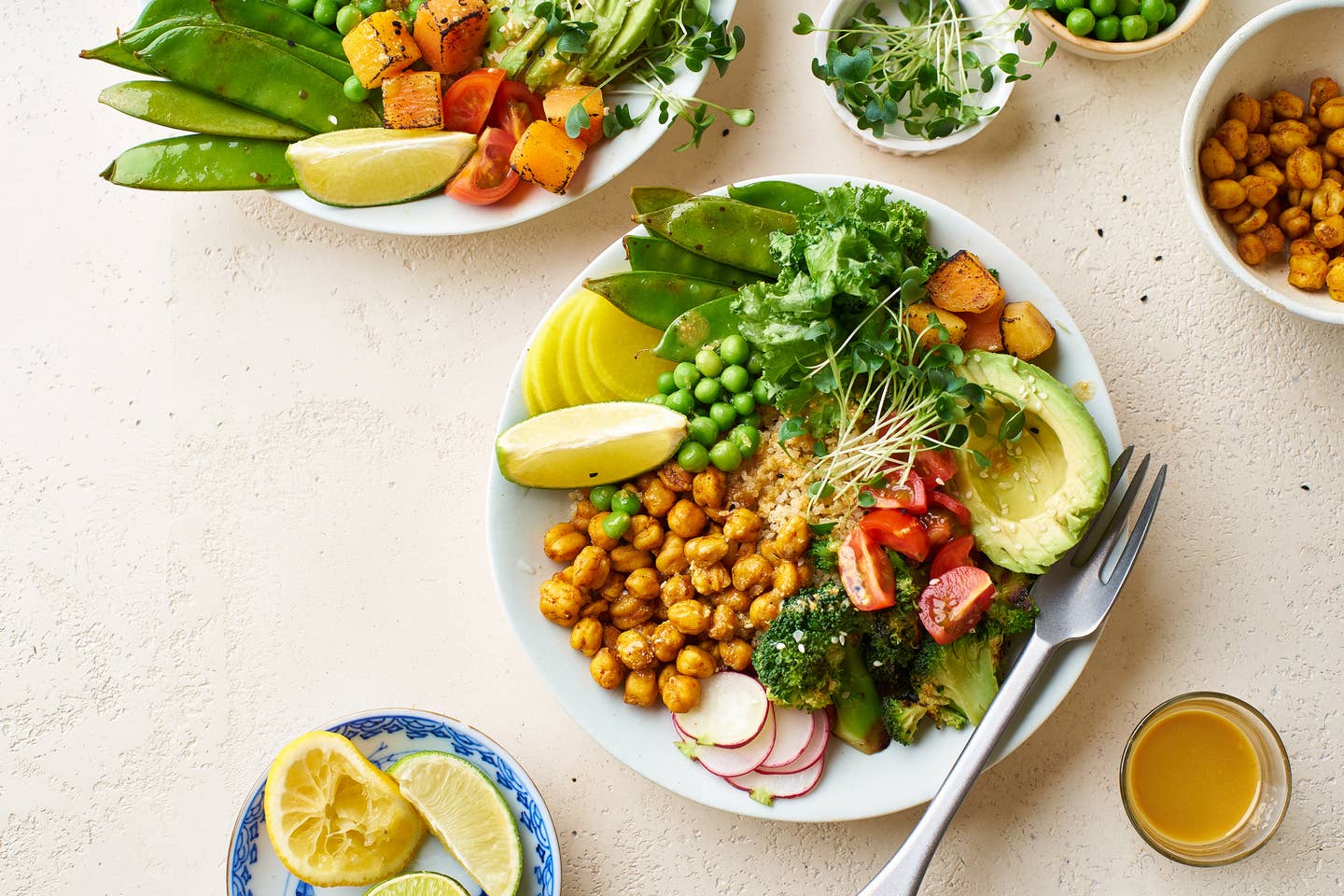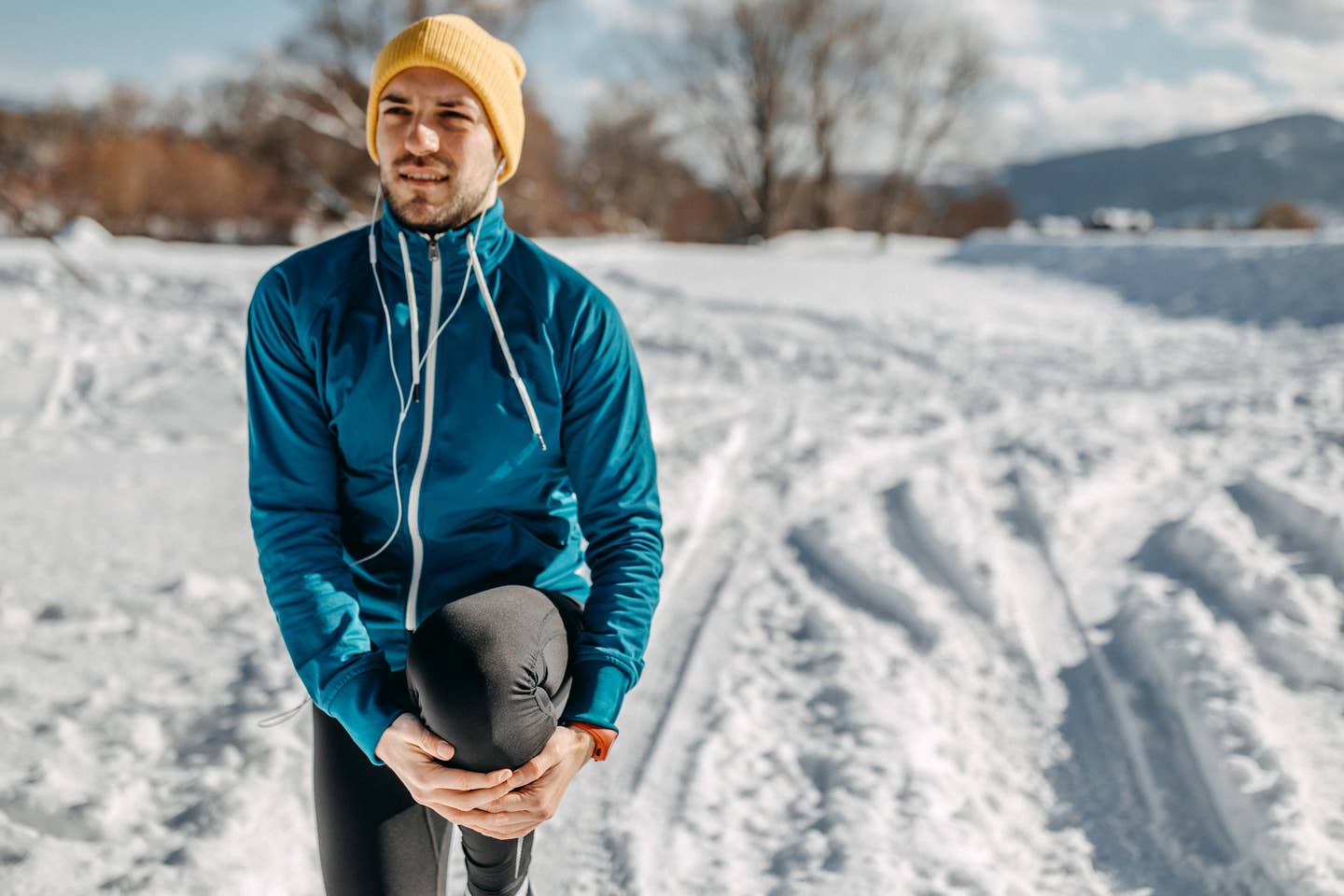
A Longevity Doctor Shows Us How To Live Longer with 6 Tips For Wellbeing
Living a long, healthier life has as much to do with our mental health and how we view our ability to change our own lives as physical markers, according to a longevity expert who coaches his patients to look at all aspects of their wellbeing, including emotional and mental issues. Where other doctors ask you about family history and measure your cholesterol, Dr. Kien Vuu interviews new patients about their work-life balance and talks about the importance of banishing self-doubt, finding purpose, and forging meaningful personal relationships.
Why? These emotional attributes directly affect our physical health. When we are lonely, for instance, our bodies enter into a state of stress, which drives up stress hormones and creates cellular inflammation. Stress also leads us to make poor health choices, like eating junk food, not sleeping, over-indulging on sweets and alcohol–whereas when we are immersed in healthy relationships and involved in our community, this type of connectivity helps boost our oxytocin, the empathy hormone, which allows us to feel less stressed and make healthier lifestyle choices. Emotional factors are not just "soft" health issues, Dr. Vuu argues since when we are stressed, chronic inflammation can set in, making us more susceptible to chronic diseases like cardiovascular disease, type 2 diabetes, and cancer, and shorten our lifespan.
The sooner we take control of our emotional and physical state the better for our longevity. So if we are, in fact, in the driver's seat, with control over our mental and physical wellbeing and not merely passengers in our health journey, the next logical question is: What can we do about it?
The Longevity Lifestyle Solution
Dr. Kien Vuu specializes in human optimation and "regenerative" medicine, aka longevity, and believes we have the choice to live free of disease, especially those chronic conditions that are caused by lifestyle habits. It begins with taking healthy emotional steps that lead us to have physically stronger lives, like creating robust relationships, or finding your purpose, which helps your resilience, lowers your stress hormones, and allows your healthy genes to be expressed, which further boosts your state of health and ultimately, your longevity.
If you ask most traditional health care professionals for a cure of a certain disease or illness, they will likely prescribe medication, but Dr.Vuu wants to first understand the root cause of a patient's symptoms and then work with that individual to help him or her to change their day-to-day activities (adding meditation, exercise, healthy foods, etc), to support a healthy immune system and naturally treat illness or prevent it before it starts.
Diagnosed with Diabetes, He Prioritized Sleep, Nutrition, and Emotional Health
Dr. Vuu was trained as an interventional radiologist, or a physician that uses medical imaging and radiology to perform invasive surgeries and procedures for patients with end-stage diabetes, hypertension, and cancer, but he shifted gears five years ago when he became an early-stage diabetic five years ago.
"I had to take a big look into my own life–especially as a doctor who's treating chronic disease, who happens to get a chronic disease,” said Dr.Vuu.
Since being diagnosed with diabetes, he dove into the research around nutrition and epigenetics in search of alternative approaches and natural remedies. “In a matter of six months—just from lifestyle changes—I was able to reverse my chronic condition,” he said.
Through his own health journey, Dr. Vuu implemented ‘natural health’ solutions into his own life and began a holistic health care practice, treating more than a hundred patients who needed to work to overcome inflammation-driven conditions, just by focusing on the stressors in their lives. He tries to get his patients to see the importance of purpose as it relates to their health. The traditional medicine practitioner, now turned unconventional doctor has written a book based on his approach, Thrive State, as a blueprint for optimal health, longevity, and peak performance. We spoke to Dr. Vuu about how to prioritize longevity and how to lower one's risk of lifestyle diseases to live healthier and longer.
6 Surprising Things to Do If You Want To Live Longer, Healthier and Happier
1. Go to bed at the same time every night and wake up at the same time every morning
Dr. Vuu explains that for optimal health, one of the most important things anyone can do is to have a good circadian rhythm, which essentially means putting yourself to bed at the same time every night. "Our bodies run on a day and night cycle, and our hormones help to regulate how our body functions, so if our circadian rhythms are off, so are our hormones," Vuu explains. "As a result, our cells aren't going to get the right signals, our hormones are constantly off and your body actually thinks that it's in danger," leading to heightened stress.
When the body is in danger, it raises your natural inflammatory response markers and makes us prone to chronic disease, he explains. "When we talk about sleep, it’s incredibly important to go to bed at the same time every night and wake up at the same time every day. You want to go to bed when it's dark and up when it's light."
2. Try to get 20 to 30 minutes of natural sunlight in the morning
A helpful hack to reset your body's biological clock is to get outside every morning and get sunlight. Do it along with exercise, but make a point to look toward the sunlight, close your eyes, and soak in the UV rays that tell your brain and body: It's a new day! Get ready to start your engines, rev up your metabolism and begin to see the possibilities of what's ahead. "I let the natural sunlight into my eyes and skin because that helps reset the circadian clock," he says. In fact, a study found that exposure to sunlight in the morning results in greater alertness and leads to better sleep that night, which improves your mood the next day.
3. Exercise regularly to avoid losing lean muscle which can slow your metabolism
Getting regular exercise every day will speed up your metabolism, improve your sleep and lower your stress levels for hours afterward, according to studies. Any kind of exercise will help you lower stress levels, according to the Mayo Clinic, which is why Dr. Vuu tells patients to get moving every day. Exercise is known to help improve your cardiovascular, digestive and immune health, but it also keeps your stress levels low and improves your mood, by releasing endorphins that fight stress for hours after your workout.
Once you start to build lean muscle, you'll recognize that your body moves better and you'll shed fat more easily because muscle is more metabolically active, Dr. Vuu explains. So even when you're just sitting in your chair working, "your muscles help speed up your metabolism and allow you to see results faster. I'm not saying you have to become a bodybuilder, but lean muscle mass is definitely good for us."
4. Avoid sugar and processed foods and eat plant-based foods
One of the most important things is to avoid sugar and processed foods and eat more plant-based foods. Aim to include all the colors of the rainbow on your plate, says Dr. Vuu. "Aim to make 75 percent of your plate made up of different colored vegetables. The richer the colors of vegetables and fruits, the more polyphenols they contain, and those antioxidants are great for our body."
Instead, include heart-healthy sources of plant-based fat into your diet avocados, coconut oil, and olive oil, and avoid meat and dairy, which are chock-full of antibiotics and hormones. "They treat animals so cruelly," says Dr.Vuu, "that the stress hormones of these animals end up in our bodies if we eat them." Instead, eat as clean as you can, avoid processed foods and choose organic plant-based foods as often as possible. If you can't always eat organic, make sure you're washing your produce very thoroughly to avoid harmful bacteria, chemicals, and pesticides.
5. Prioritize and strengthen your personal relationships
Your relationships play a key role in determining how your overall health and wellbeing turn out and are as important, Dr. Vuu says, like your genetic makeup. "How those genes get expressed determines how healthy or unhealthy our lives are." And stress, especially emotional stress, leads to lifestyle choices that can make the difference between a long healthy life and disease.
Positive relationships are key to longevity, says Dr. Vuu. "When you cultivate positive relationships, you increase oxytocin in your system, and it turns out oxytocin is so important on so many different levels and is one key for our overall health."
This empathy hormone helps to improve microbiome diversity and overall digestive health. "It helps with our blood pressure stability. So, for people with elevated blood pressure, it will help lower cortisol and stress hormones and will help with blood pressure as well," Dr. Vuu explains. "It's also great for a lot of the mood disorders that we have such as anxiety."
"How do we get more oxytocin circulating? With positive social interaction," he explains.
And when we add physical touch, oxytocin goes even higher, which is why social isolation has been so unhealthy for many people, causing them stress, sleeplessness and weight gain. "Finally, your oxytocin is also elevated in sexual activity, and your levels of oxytocin can be further helped when personal relationships are combined with a strong sense of purpose.
"When we study relationships, we find that loneliness is an inflammatory state," Dr. Vuu says. So, for anyone who is older, or alone, they are at increased risk of getting heart disease and dying earlier, he explains, but these factors can be mitigated with improved social contact, meaningful purpose-driven work, or healthier interactions.
6. Find your purpose and get involved in your community to live longer
When we talk about life span, Dr. Vuu says, science tells us that purpose helps people live longer. What exactly is purpose, and how can we benefit from this finding? "Purpose is belonging to something bigger and greater than ourselves," he explains. So, it can be working for a cause or group bigger than yourself and thinking about other people. There have been studies on how working or volunteering with a sense of purpose helps people over 50 live longer.
How do you find a sense of purpose? Dr. Vuu tells his patients to look for something that they can connect to within their community, whether it's a local charity or group, and get involved. It can be anything: A clean-up initiative, a local charity, or a church. Ask yourself: How much do you feel connected with that? "In the studies about purpose, the people who answered those questions, by saying they felt like they belong to something bigger or served a bigger cause, also had longer, healthier cell telomeres [the cell endings that indicate longevity] than the people who didn't have a sense of purpose."
"On average, people live seven years longer if they have a deep sense of purpose," Dr. Vuu reports. "They also had a limited risk of cardiovascular diseases, such as heart attack and stroke, which are the number one killer among Americans. If you happen to be hospitalized, if you have a sense of purpose, you actually spend fewer days in the hospital. This really is medicine, and purpose actually has biological effects."
Researchers also noticed that people with purpose quiet down their body's stress response which actually lowers inflammation and increases immunity. So sharing yourself with other people, can actually lead to having a sense of purpose and boost longevity. "And that's how I bring that back to longevity because it has such a wide range of effects and so much data behind how it as to how it helps people live longer and saves you from chronic disease. And really the key element here is being a part of a community, serving a greater purpose beyond yourself and connecting with other people."
So, as kids, we know the things that bring us joy, Dr. Vuu says. "It's really about remembering who we are. Your purpose is really just to discover the things that light you up, discover the things that bring you into the emotional states of joy, of gratitude. Because those emotional states, as I discuss in my book, are actually anti-aging medicine. That's your most authentic self. And when you share your authentic self, that's your purpose.
More From The Beet






